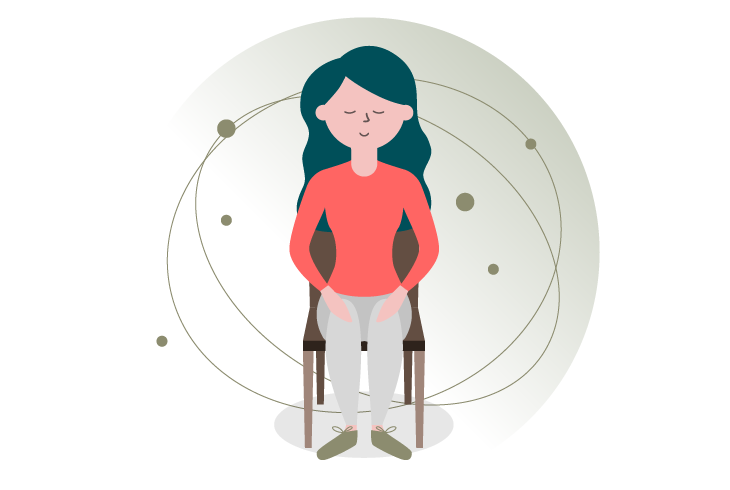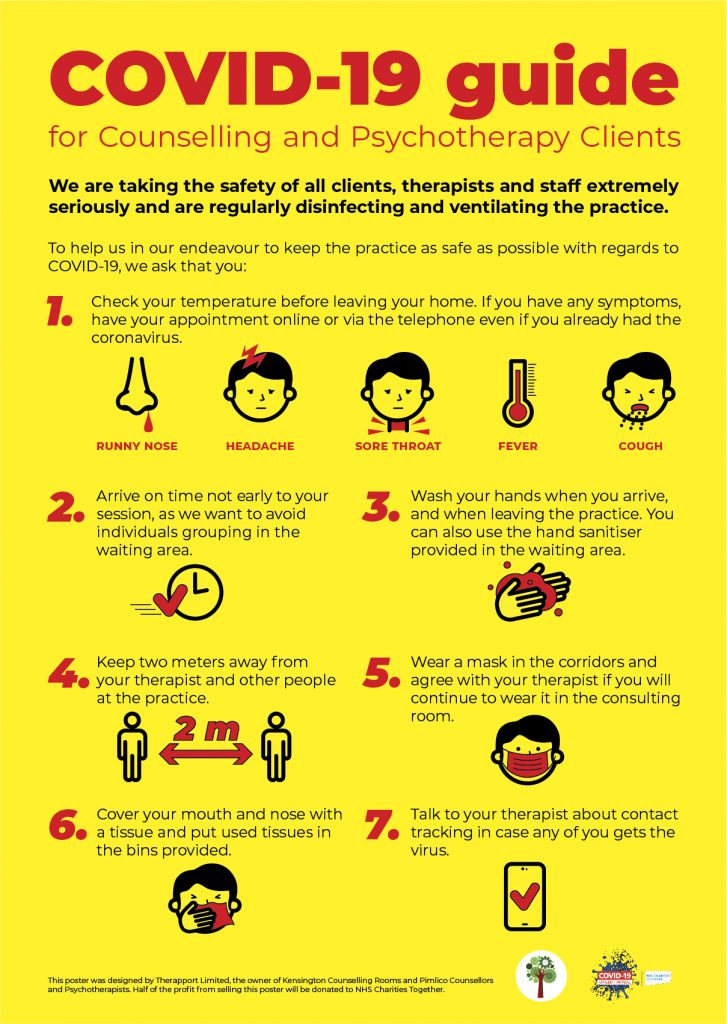Self-care is important in every day-to-day life, but especially when we find ourselves in isolation. With the Coronavirus spreading, isolation is becoming the norm for the elderly and vulnerable. You can also feel isolated if you have had a recent bereavement of a partner or parent. A person who has been a big part of your life suddenly not being there can trigger feelings of being alone. Or, if you are feeling depressed and you cannot face the outside world physically or mentally, you can shut down and avoid connection as it can feel too overwhelming.
We have been asked to self-isolate and most of us, more or less reluctantly complied. Most of us went through a phase of disbelief or even denial of the severity of the problem. It is hard to accept the need for isolation if we are in good health or young age, yet the virus reminds us that nobody is immune. We may also pass it on other people, so why it’s so difficult to accept it? It’s hard to recognise and accept our vulnerability in a society that on day to day basis teaches us to ignore it, we may also resist desperately the isolation that is against most of our human, social instincts. Isolation is difficult.
For some of us, coronavirus isolation will trigger a sense of abandonment. Even though rationally we know that we have to stay separated, in our feelings, we may be reminded of the times when we lost connection with someone or got rejected. Being in a state of anxiety can also feel hugely isolating, as a person can feel nobody else can understand how they feel. They believe that avoiding connection or any social contact is easier than having to reach out and explain how they are feeling. When in a fight/flight mode it is hard to communicate how we are feeling, as the part of the brain that helps us communicate shuts down - so reaching out can feel particularly hard. Having a self-care plan for these moments of isolation, as well as long term self-care, can be immensely valuable and healing. In times of isolation, it can be a time to ground, be present and set goals for the future and recharge. It can also be a time of feeling alone, overwhelmed and mentally unstable. Having self-care in place can help with this.
The most important thing is that our self-care pattern doesn’t become another burden. Coronavirus isolation and fear can make us overactive too and we can even use this article as a new project for ourselves, rather than a resource and support. Please treat every piece of advice in this article as a possible invitation and start from pausing and sensing what is good for you. For example, healthy food is good for us, but turning ourselves into nutritionists in the next few weeks is a rather challenging task.
Self-care means being kind to yourself and taking responsibility for your emotional and physical wellbeing. There are many types of self-care, I will mention just a few - physical, emotional/mental and social.
Physical self-care during coronavirus isolation
Good Sleep
Getting enough sleep is paramount for mental wellbeing. When we sleep, we produce serotonin which is our happy hormone, so if we are not getting enough sleep on a regular basis, our serotonin will be low.
Tips for good sleep:
- turn off all electronics a couple of hours before bed,
- do something to help switch off the thinking mind before trying to sleep (e.g. a hot bath, reading, mediation, yin yoga) - read out article on Mindfulness for more info.
- If you have had a stressful day and your mind is racing, it can be helpful to write down how you are feeling in a journal or even on a piece of paper
- Keep a journal of your dreams.
Also, often when we feel tired can be the best time to connect to our emotions as we do not have the energy to suppress them. You often hear people say “I am feeling sad because I am tired”, but the truth is the feelings you have when you’re tired are what need to be connected and expressed. So it can be useful to check in with oneself when tired to see what feelings are there that we might be unaware of.
Moving/Exercise
When we move, it helps move our energy and process our emotions. When feeling isolated, we can get stuck in the thought loop of “I am alone”. Moving can help move through this. Exercise also makes you feel good physically and emotionally.
Some ways to move if stuck at home: put music on and dance round the kitchen (how many times have you done that after a few wines!). This is a great thing to do first thing in the morning. Music is also uplifting or can help you have a good cry/release of anger if you feel you need to express that.
Shaking – literally shaking things off. Our bodies do this naturally when we are in shock or trauma.
Walking in nature – leave your phone at home and be present in the moment, connecting to nature is healing.
Yoga and stretching are amazing for the mind and body. Yoga can help you breathe deeply and tune out of thinking and become present, not lost. Stretches feel great in the body.
Healthy food
Soul food! Food that we enjoy and that is good for us is nurturing. It can also be great to spend time cooking for yourself (an act of self-love).
Expressing
Being able to express emotions is vital for self-care - having a good cry if feeling sad, having a good shout (not at someone) if you need to express anger. Often when we do this, we end up laughing, which is a great physical release too. Own your feelings, though, don’t blame someone else.
Emotional self-care
One of the most important areas of emotional self-care and stress management is our relationship with social media. Designed to cause a sensation, Facebook, Twitter, Instagram, and so on, need to be assessed in connection to your own wellbeing. What news is necessary during coronavirus isolation? How much in a day can you take? Which sources of information nourish you and provide you with an adequate connection with the situation outside of your home and which cause you unnecessary stress?
Connecting to people, you feel safe with to be able to express how you feel is important. Perhaps have a couple of friends on speed dial that know sometimes you are isolated so need to speak to someone or even have a check-in text.
What things can make you feel grounded?
Feeling grounded in a state of relaxation when we feel in touch with the ground underneath or just aware of our breath. You can achieve this through mediation but also deep belly breaths, listening to music, reading listening to a podcast, cooking or gardening. We are all different, so finding our unique way to de-stress is vital. Some of us can benefit from belly breathing. When we feel stressed, our breathing tends to go shallow, fast and into the chest, not the whole body.
Compassion and kindness to self
Watching your inner dialogue with yourself. If you find yourself thinking negative thoughts about yourself, ask yourself: “would I talk to someone else like that?” If you tend to have negative thoughts towards yourself, perhaps you could try starting the day with three things, you are grateful for or like about yourself.
Social self-care
That’s not a surprise, we are inherently social beings, and lack of interactions may be detrimental to our mental health. Many of us started reaching out to friends, either via the telephone, zoom or other apps, and some of us may choose to have additional support seeing a counsellor. Zoom dinners, book clubs or birthdays quickly became a reality, and it’s important that we schedule some of them. However, we may also need to have good boundaries. If you don’t have a strong “No”, your “Yes “means nothing. It’s important to not people-please. Check-in with your needs first don’t do something just to please someone else.
Sometimes someone can feel too overwhelmed or stuck in a place where it’s hard to reach out. However isolated you are feeling, please remember you are not alone; there is always someone you can connect to and support you.
If you’re feeling isolated, depressed, anxious or in a place where you need some support from professionals, please reach out to a counsellor or, if urgent, here are some useful places to call and connect with.
Samaritans call 116 123 or email.
Sane: 0300 304 700
The Mix If you are under 25: 0808 808 494
Calm if you identify yourself as male: 0800 585858
Nightline if you are a student.
For online counselling, if in isolation, please contact our online counsellors.

 CORINNE GUION
CORINNE GUION
 30 October 2023
30 October 2023




